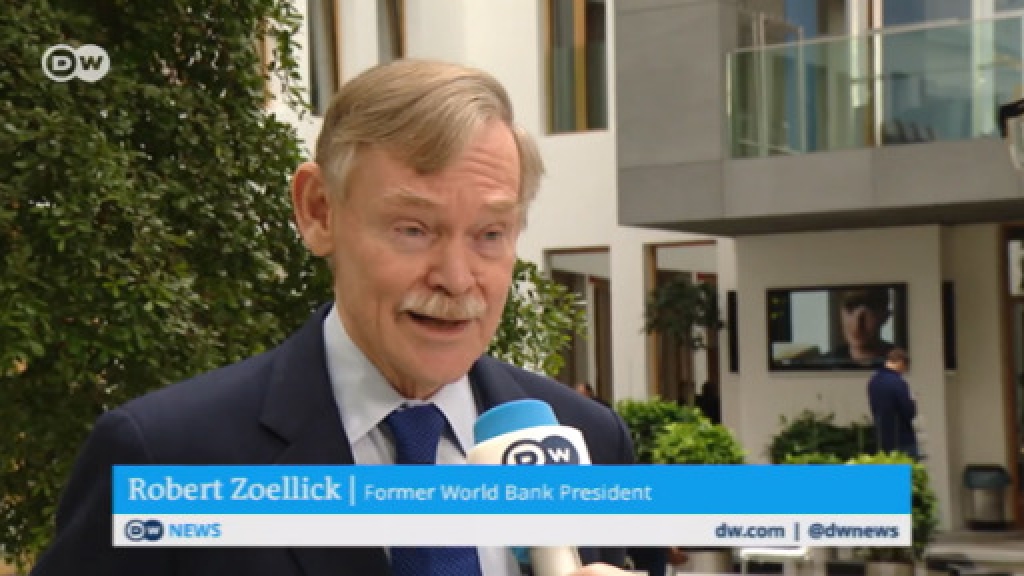Europe And Trump: Deconstructing The Trade Conflicts

Table of Contents
The Roots of the Conflict: Understanding Trump's Trade Policies
The Trump administration's "America First" policy fundamentally reshaped US trade relations, leading to significant Europe Trump trade conflicts. This protectionist approach prioritized domestic industries, often at the expense of international partners, including the European Union.
"America First" and its Implications for European Businesses
The protectionist nature of the Trump administration's trade agenda manifested in various ways, directly impacting European businesses. High tariffs imposed on European goods aimed to bolster American industries and reduce the US trade deficit.
- Tariffs on Steel and Aluminum: These tariffs, implemented in 2018 under Section 232 of the Trade Expansion Act of 1962, targeted steel and aluminum imports from numerous countries, including the EU, citing national security concerns. This sparked immediate retaliation from the EU.
- Tariffs on European Automobiles: The threat of significant tariffs on imported European automobiles hung over the transatlantic relationship for much of the Trump presidency, causing uncertainty and anxiety within the automotive sector. While these tariffs were not ultimately implemented to the extent initially threatened, the uncertainty itself caused damage.
These tariffs heavily impacted key European sectors:
- Automotive Industry: European car manufacturers faced increased costs and reduced competitiveness in the US market.
- Agricultural Sector: Farmers exporting goods like cheese and wine to the US encountered significant trade barriers.
- Steel and Aluminum Industries: European producers experienced reduced export volumes and market share in the US.
The overall effect was a chilling effect on European investments in the US and a decrease in transatlantic trade.
NATO and Transatlantic Security Concerns
Trump's frequent criticism of NATO and European defense spending further strained the relationship. His questioning of the alliance's value and demands for increased financial contributions from European members created significant tension.
- Reduced US Commitment?: Trump's rhetoric raised concerns about the US commitment to collective defense within NATO, impacting European security perceptions.
- Increased Defense Spending Pressure: The pressure on European nations to significantly increase their defense budgets created internal political challenges and strained already limited resources.
- Erosion of Trust: Trump's actions and statements undermined the trust and predictability that underpinned the transatlantic security partnership for decades.
These disagreements jeopardized the long-standing security cooperation between the US and Europe, prompting significant debate within European capitals about the future of the transatlantic alliance.
Key Trade Disputes and their Fallout: Analyzing Specific Conflicts
Several major trade disputes characterized the Trump era, significantly impacting the Europe Trump trade conflicts.
The Airbus-Boeing Subsidy Dispute
This long-running World Trade Organization (WTO) dispute centered on allegations of illegal government subsidies provided to Airbus by European governments and to Boeing by the US government. This resulted in a tit-for-tat exchange of retaliatory tariffs impacting a wide range of goods.
- WTO Rulings: Both the EU and the US were found guilty of providing illegal subsidies, leading to authorized retaliatory tariffs.
- Economic Impact: These tariffs disrupted supply chains and affected aerospace industries on both sides of the Atlantic.
- Escalation of Tensions: The ongoing dispute further strained the already tense relationship between the US and the EU.
Tariffs on Steel and Aluminum
As previously mentioned, tariffs on steel and aluminum imports from Europe, justified on national security grounds, caused considerable damage and retaliatory measures.
- EU Countermeasures: The EU retaliated by imposing tariffs on a range of US goods, impacting various American sectors.
- Economic Ramifications: These tariffs increased prices for consumers and businesses on both sides of the Atlantic, while harming the competitiveness of affected industries.
- Political Fallout: The actions fueled protectionist sentiment globally and further destabilized the multilateral trading system.
The Long-Term Impacts: Assessing the Legacy of the Trade Wars
The Europe Trump trade conflicts left a lasting mark on the transatlantic relationship and the global trading system.
Damage to Transatlantic Relations
The trade disputes significantly eroded trust and cooperation between the US and Europe.
- Strained Diplomatic Ties: The confrontational approach adopted by the Trump administration damaged diplomatic relations and hindered effective communication.
- Challenges to Future Collaboration: The disputes made it more difficult to address shared challenges such as climate change, security threats, and global health crises.
- Rebuilding Trust: Rebuilding the level of trust and cooperation that existed before the trade conflicts will require sustained effort and a commitment from both sides to resolve differences through dialogue and compromise.
Shifting Global Trade Dynamics
The trade wars contributed to a broader shift towards protectionism, undermining the rules-based international trading system.
- Rise of Protectionism: The Trump administration's policies emboldened protectionist forces in other countries, threatening the stability of global trade.
- Search for Alternative Partnerships: Europe actively sought to diversify its trade relationships, exploring partnerships beyond the US, such as strengthening ties with China, Asia, and Africa.
- Rethinking Trade Agreements: The experience of the trade wars prompted a reassessment of existing trade agreements and a greater focus on strengthening multilateral trade institutions.
Conclusion:
The Europe Trump trade conflicts highlighted significant challenges to the transatlantic relationship and the global trading system. Trump's protectionist policies resulted in substantial economic and political consequences for both sides. The disputes revealed vulnerabilities in the existing trade architecture and underscored the need for stronger transatlantic cooperation. Understanding the complexities of the Europe Trump trade conflicts is crucial for navigating the future of transatlantic relations and global trade. Further research into the lasting impacts of these trade wars, and proactive strategies for mitigating future conflicts, are essential. Continue to learn more about Europe and US trade relations to stay informed on this ever-evolving landscape.

Featured Posts
-
 Fungal Pathogens And Climate Change A Dangerous Combination
May 26, 2025
Fungal Pathogens And Climate Change A Dangerous Combination
May 26, 2025 -
 Investigating The Association Between Presidential Seals Expensive Watches And High Profile Events
May 26, 2025
Investigating The Association Between Presidential Seals Expensive Watches And High Profile Events
May 26, 2025 -
 Understanding The Controversy Surrounding Thames Water Executive Bonuses
May 26, 2025
Understanding The Controversy Surrounding Thames Water Executive Bonuses
May 26, 2025 -
 Sirkuit Silverstone Jadwal Balapan Moto Gp Inggris Klasemen And Posisi Marquez
May 26, 2025
Sirkuit Silverstone Jadwal Balapan Moto Gp Inggris Klasemen And Posisi Marquez
May 26, 2025 -
 Bank Of Canada Rate Cut Less Likely After Strong Retail Sales
May 26, 2025
Bank Of Canada Rate Cut Less Likely After Strong Retail Sales
May 26, 2025
